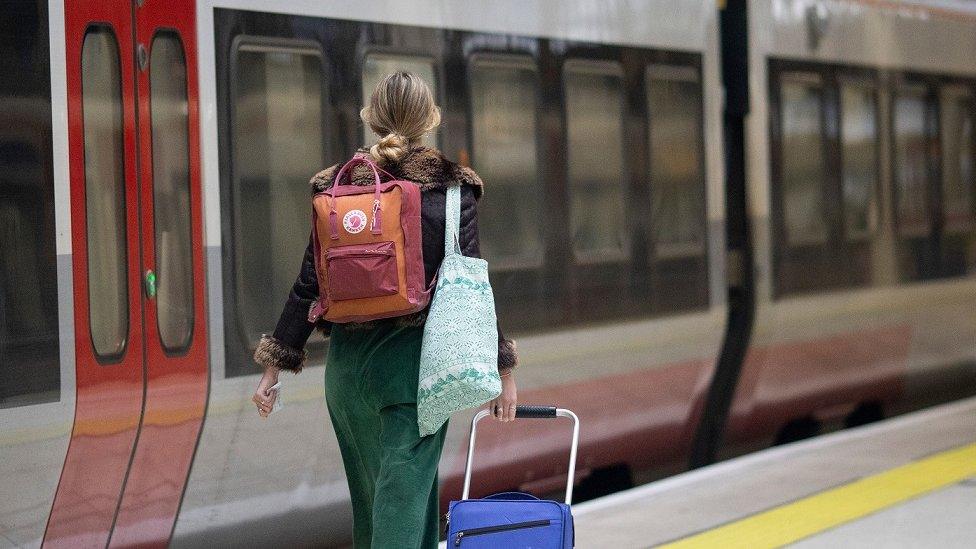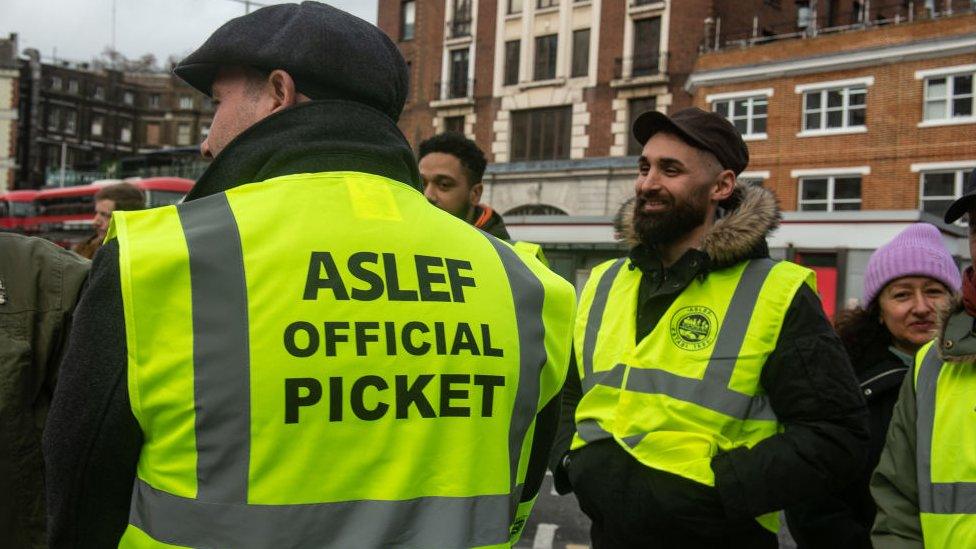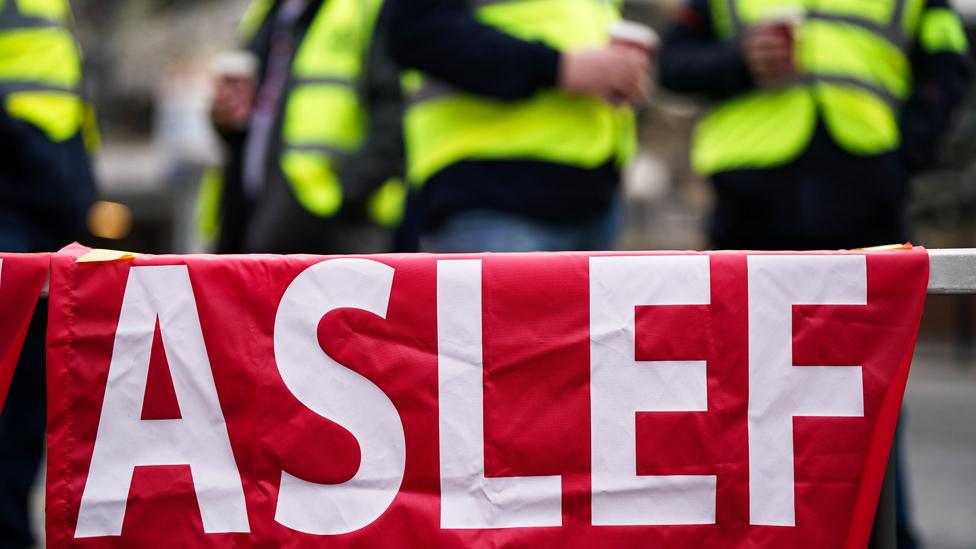Train drivers to go on strike in February
- Published
- comments

Train drivers are to strike on 1 and 3 February after union bosses rejected a pay offer from rail companies.
Drivers had been offered a 4% pay rise for two years in a row earlier this month in a bid to end a long-running dispute over pay and conditions.
But the pay deal hinged on several changes to working practices.
Aslef said the proposal was "not and could not ever be acceptable", but its general secretary Mick Whelan said the union was open to further talks.
"Not only is the offer a real-terms pay cut, with inflation running north of 10%, but it came with so many conditions attached that it was clearly unacceptable. They want to rip up our terms and conditions in return for a real-terms pay cut," he said.
The two new strike dates will affect 15 train companies. Aslef members have staged action on six previous occasions, causing huge disruption to services, with some operators unable to run any trains.
The RMT union, which also represents a few hundred train drivers, confirmed its members at 14 companies would also strike on the same dates in February, although it will only make a marginal difference to the level of disruption.
The RMT strike will affect many of the same train companies hit by the Aslef walkout, but also include c2c and Island Line.
RMT general secretary Mick Lynch said negotiations would continue with the rail operators "to create a package on jobs, conditions and pay that can be offered to our members".
The fresh walkouts by drivers come after a series of large-scale rail strikes, with other rail workers, such as guards and signalling staff in the RMT union, striking in recent months.
The rail industry is not alone, with many other workers, such as nurses, ambulance staff and civil servants also taking industrial action.
The offer, the first in the dispute to be made by the Rail Delivery Group (RDG), which represents train companies, would have seen drivers get a backdated pay rise of 4% for 2022 and a 4% increase this year.
The RDG had said the deal would have seen the average salary for a driver increase from £60,000 per year to £65,000 by the end of 2023. Ten years ago it was £44,985.
Responding to the rejection by Aslef, the RDG said it was disappointing its "fair and affordable offer" was not put to the union's members.
"With taxpayers still funding up to an extra £175m a month to make up the shortfall in revenue post-Covid, it provided a significant uplift in salary for train drivers while bringing in long overdue, common-sense reforms that would mean more reliable services for passengers," a spokesperson added.
The group urged Aslef to "recognise the very real financial challenge the industry is facing and work with us to deliver a better railway with a strong long-term future".
But Aslef's Mr Whelan said the offer had been "rushed" and was not one designed to be accepted.
"Our members at these companies have not had an increase since 2019, despite soaring inflation, and it is time the companies - encouraged, perhaps, by the government - sat down with us and got serious," he said.
"That is the way - and the only way - to end this dispute."


This rejection is not a surprise.
Unlike the RMT's dispute, the mood music with Aslef remains very pessimistic, and there has been much less progress.
Aslef, which represents the vast majority of train drivers, is unhappy both with the process by which the RDG's initial offer was made, and its contents.
And its general secretary recently told me its members were in the dispute for the long haul, with some wanting action stepped up.
The government says the offer is fair and reasonable, while the industry argues proposed changes will make services more reliable.
Assuming these latest walkouts go ahead, expect many of the affected operators to run no trains at all on strike days.

The Department for Transport called Aslef's rejection "incredibly disappointing", and said passengers had "borne the brunt of these damaging strikes for far too long".
"The government has played its part and facilitated conversations," a spokesperson said.
"We urge Aslef to play their part, call off strikes and consider this fair and reasonable offer to members, which would see train drivers receive a pay rise in line with the private sector without fuelling inflation, so we can bring this dispute to an end."

What are your opinions on the February train strikes? Share your experiences by emailing haveyoursay@bbc.co.uk, external.
Please include a contact number if you are willing to speak to a BBC journalist. You can also get in touch in the following ways:
WhatsApp: +44 7756 165803
Tweet: @BBC_HaveYourSay, external
Please read our terms & conditions and privacy policy
If you are reading this page and can't see the form you will need to visit the mobile version of the BBC website to submit your question or comment or you can email us at HaveYourSay@bbc.co.uk, external. Please include your name, age and location with any submission.
Related topics
- Published7 January 2023

- Published5 January 2023

- Published1 August 2023
